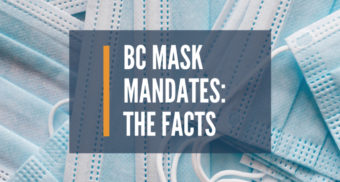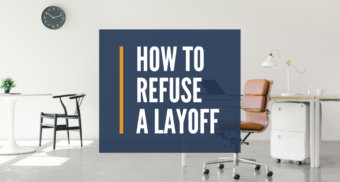CERB Expanded to include more Canadians hit by COVID-19 – 980 CKNW

Prime Minister Justin Trudeau on Wednesday announced expanded eligibility rules for the Canada Emergency Response Benefit and a plan to top up pay for some essential workers as the coronavirus pandemic forces much of the world to remain in a social and economic lockdown.
The CERB will become available to Canadians who have exhausted their employment insurance (EI) benefits since Jan. 1, seasonal workers who can’t find work because of COVID-19 and those who earn up to $1,000 a month.
Lior Samfiru is an employment lawyer and founding partner of Samfiru Tumarkin LLP. He joined host Jill Bennett on Global News Radio 980 CKNW to discuss the latest changes to the CERB, and answer questions from listeners.
If I have multiple jobs and lose one of them due to COVID-19, can I apply for the CERB?
Under the old rules, you would not have qualified for the CERB if you lost one job due to COVID-19, but were still drawing income from another job. With recent changes to the CERB, if you are making $1,000 per month or less, you will qualify.
I had to lay off my employee due to business losses. Is there any help for small businesses still making income but not enough?
If you are a small business owner affected by the coronavirus pandemic, you may be able to qualify for certain government programs, including tax deferrals or business loans of up to $40,000. The CERB only applies to individuals, either employees or self-employed, whose jobs have been hurt by the response to the pandemic.
I had to use up my vacation time because my employer cut my hours by 50%. Does my employer need to reimburse that vacation time?
No. An employer can require you to use your vacation time. Once that vacation time has been used, you can’t be reimbursed for that time. This is true even if you would like to save your vacation time for use later in the year. The employer legally has the right to decide when you are to use your vacation time.
Is my pension considered income? If I earn a pension, can I still qualify for CERB?
No, your pension does not count as income, meaning that if your sources of compensation have dried up due to COVID-19, you would likely qualify for the CERB.
My employer has cut back my salary and work hours by 20% due to COVID-19. Can I qualify for the CERB?
The pay reduction does not in and of itself qualify you for the Canada Emergency Response Benefit. What it likely does is change the terms of employment between you and your employer. You may be able to claim constructive dismissal (meaning you treat the change as a termination of employment) and leave your job with full severance pay.
Can an employer cut an employee’s salary 75% and use the Canada Emergency Wage Subsidy to replace that salary?
The Canada Emergency Wage Subsidy (CEWS) is designed to allow employers to offset wages. It allows employees to receive 75% of their wages. However, if the net effect on the employee is that they are now only making 75% of their income (whether it comes from their employer or from the government by way of the CEWS) the employee can make a choice: They can choose to either accept the change and the possibility that the employer may not return their income to pre-COVID levels, or they may be able to treat the change as a constructive dismissal, and obtain severance pay.
I received the first CERB payment through EI. Do I need to continue updating my weekly EI records to receive the CERB?
If you apply for EI after March 15, 2020 you are automatically shifted to the CERB program. Therefore, you are receiving CERB payments, rather than EI payments. That means that you do not need to file weekly reports through Employment Insurance. You may have been processed through EI, but now you are in a completely different system that does not carry the same reporting requirements.
You will likely need to resume weekly reporting after the point at which the CERB ends, and you are moved back to Employment Insurance.
My wife worked in mid-2019 making less than $5,000. Can she apply for the CERB?
No. As of April 15, 2020 she does not qualify for the CERB program because she does not meet the $5,000 threshold.




